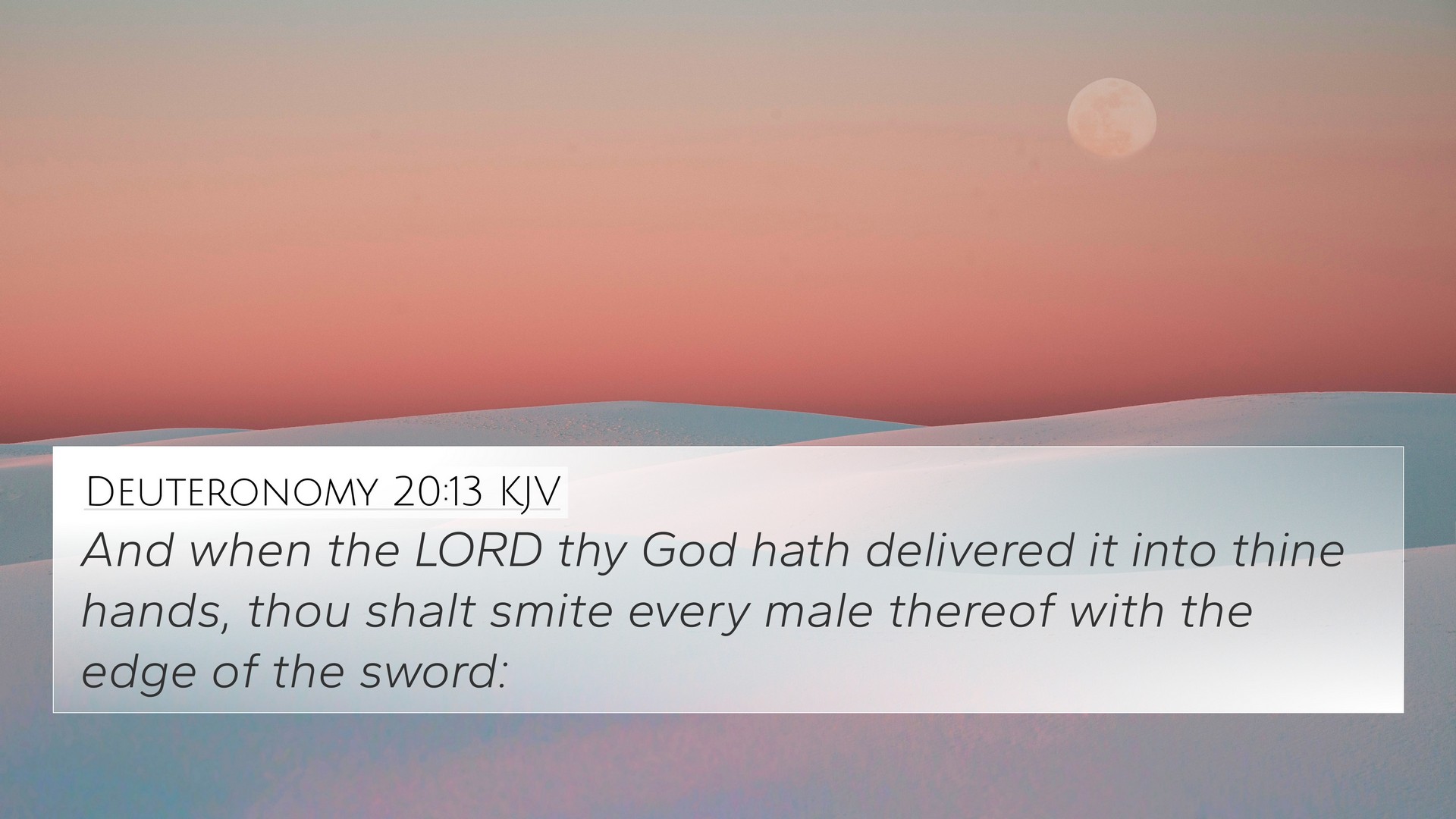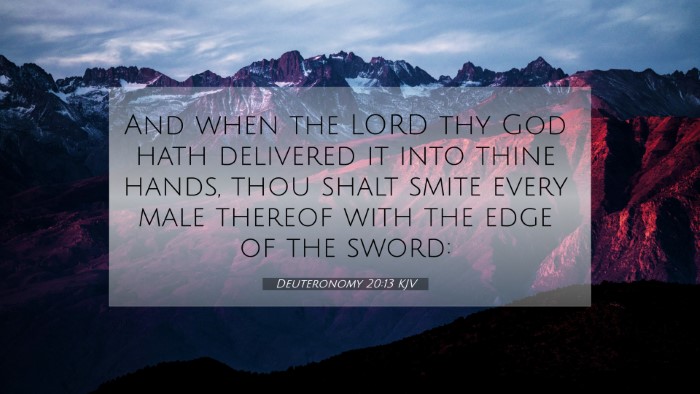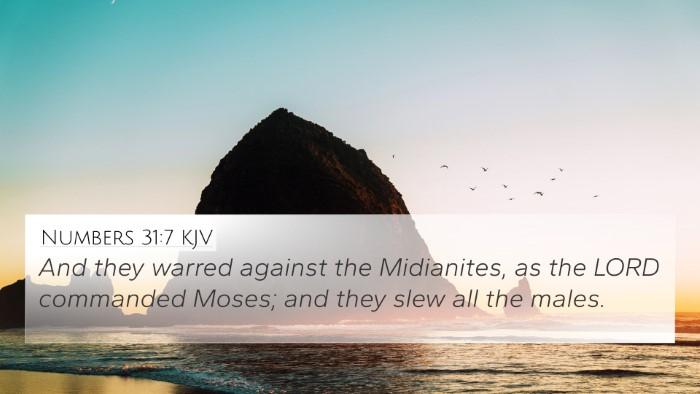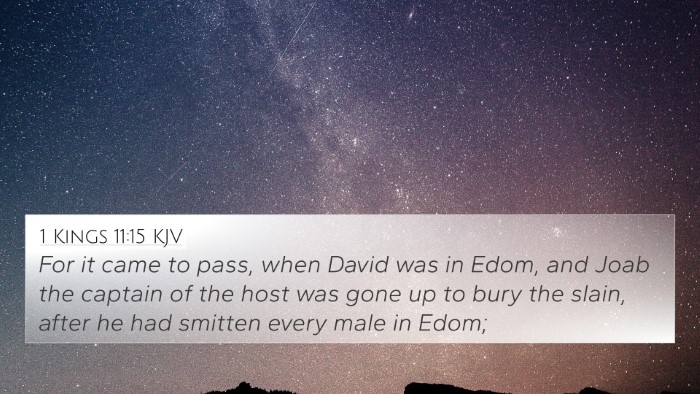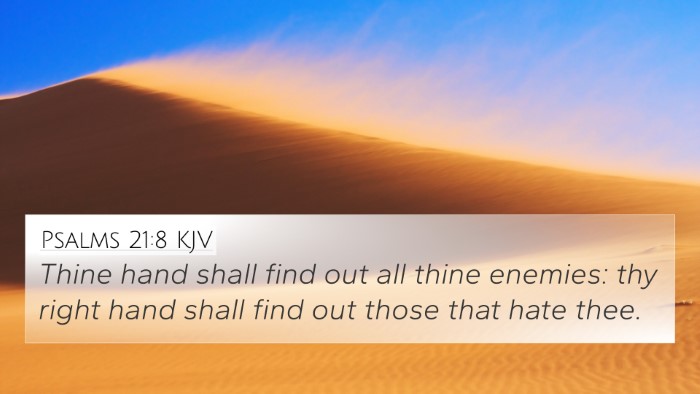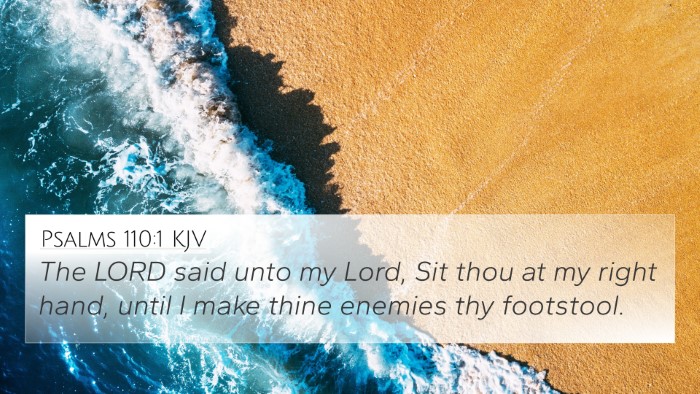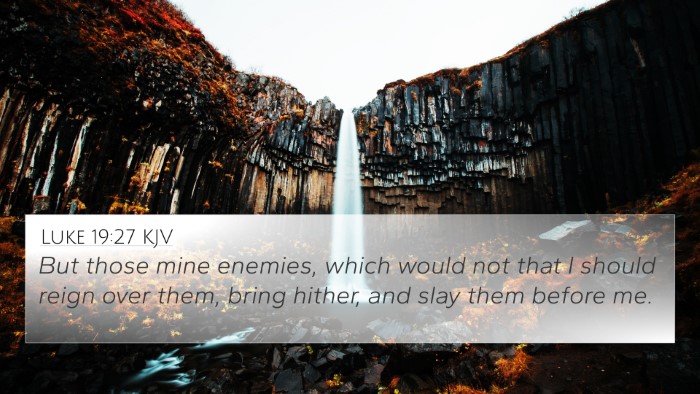Understanding Deuteronomy 20:13
Deuteronomy 20:13 states: "And when the LORD your God delivers it into your hands, you shall strike every male in it with the edge of the sword." This verse, emanating from the Mosaic Law, addresses the treatment of cities that were taken in warfare, particularly those of nations that were to be judged for their evil practices.
Context and Historical Background
This directive is set within the context of Israel's impending conquest of Canaan, where the Lord instructed the Israelites on the severity required during the conquest of enemy nations. According to public domain commentaries such as those by Matthew Henry and Adam Clarke, it reflects God's judgment upon these nations for their sins and idolatry, necessitating their destruction.
Commentary Insights
Matthew Henry suggests that the directive signifies God's sovereignty and justice. It was essential for Israel to execute judgment on these nations as part of God's larger redemptive plan. He emphasizes that this command was not arbitrary but was rooted in the fulfillment of divine justice against wickedness.
Albert Barnes observes that the destruction of these male figures specifically highlights the intent to eradicate not only the individuals but the continuance of sinful practices that these people perpetuated. This action served both as a military strategy and a theological imperative, aimed at preserving the moral and spiritual integrity of Israel.
Adam Clarke points to the harshness of this command as reflective of the era's cultural context. He acknowledges that while the command might seem severe by modern standards, it illustrated how seriously God took the corruption of the land.
Theological Implications
The theological implications of Deuteronomy 20:13 can be linked to the overarching narrative of God's justice and redemptive purposes. This context is crucial in understanding God's attitude towards sin and the means by which He sought to establish a holy people.
Bible Cross-References
- Joshua 6:21: Describes the fall of Jericho and the total destruction commanded by God.
- 1 Samuel 15:3: God's command to Saul regarding Amalek, further illustrating the divine judgment on nations.
- Deuteronomy 2:34: Explains the Israelites' conquest and destruction of the cities of King Sihon.
- Leviticus 18:24-25: Details the abominable practices of the nations in Canaan that led to God's judgment.
- Numbers 21:3: Shows the Israelites' victory and the destruction of the Canaanite cities.
- Jeremiah 25:9: The theme of divine judgment on nations depicted through prophetic utterance.
- Revelation 16:6: References judgment and punishment across nations in the eschatological context.
- Psalm 69:28: A cry for the destruction of the wicked, connecting to God's judgment.
- Ezra 9:11: Discusses the corrupt practices of nations that warranted God's wrath.
- Romans 1:18-32: Speaks of God's judgment on all ungodliness and wickedness.
Connections Between Bible Verses
The connections between Deuteronomy 20:13 and other scriptures reflect a theme of divine judgment and the moral obligations of God’s people regarding sin. These connections can be explored through various methods:
- Comparative Bible Verse Analysis: Studying the contexts in which divine judgment is exercised in both Old and New Testaments.
- Thematic Bible Verse Connections: Examining themes of judgment, redemption, and obedience across different scriptures.
- Inter-Biblical Dialogue: Engaging with how the New Testament interprets the judgments seen in the Old Testament.
Using Bible Cross-References
Utilizing tools for Bible cross-referencing can enhance understanding of complex passages. Bible concordances and cross-reference guides help in identifying connections between Old and New Testament themes, allowing for a deeper grasp of God's consistent nature throughout scripture.
Conclusion
Deuteronomy 20:13 serves as a significant reminder of God’s judgment on sin and the moral obligations of His people. Through careful study and cross-referencing of biblical texts, believers can glean profound spiritual truths that remain relevant today. The interconnectedness of scripture demonstrates God's unwavering commitment to righteousness and the call for His followers to uphold holiness in all circumstances.
